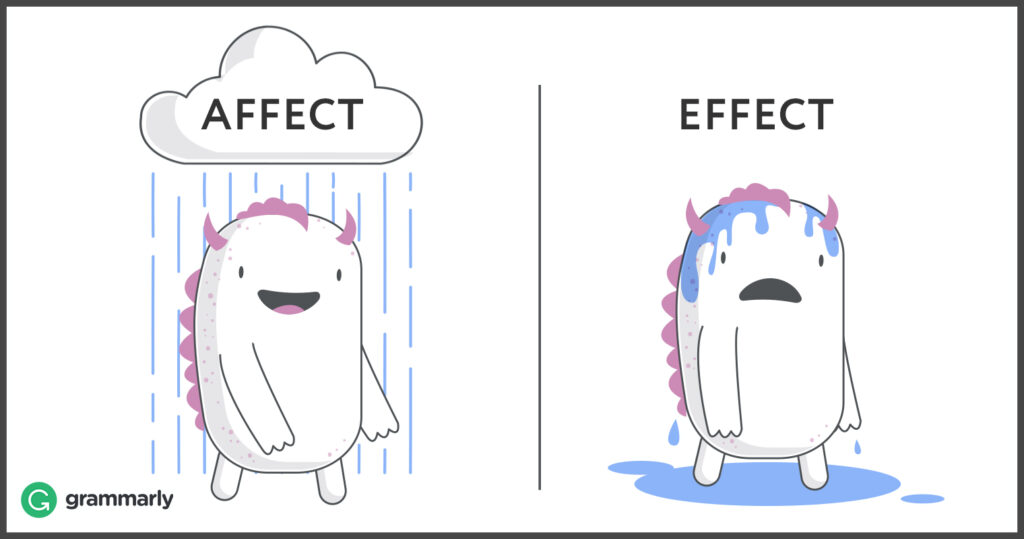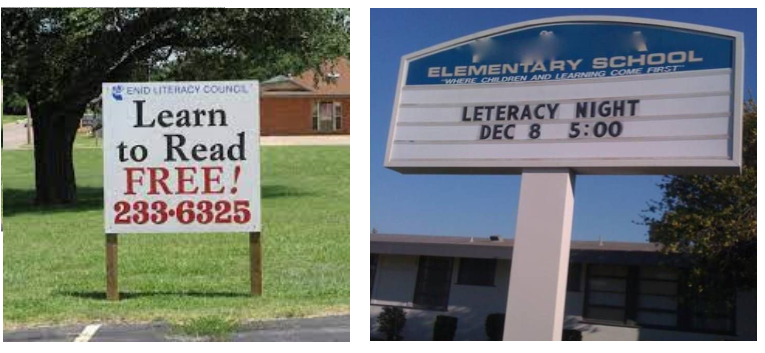April 20th, 2024 – Commonly Misused English Words

In my job, I wear many hats. I proofread, I transcribe, and I’m a scopist. This means I spend a lot of time reading and editing works in the English language.
My clients (be they writers, court reporters, lawyers, etc.) are intelligent and comprehensive writers. However, I have come across a document or two with their fair share of misused or incoherent words and sentences. This lead me down a research rabbit hole.
English is a difficult language. These mistakes are not unheard of or even uncommon. So, I asked myself, “What are some of the most common words people tend to misuse in their sentences?” I could already think of a few words I could remember being misused in my depositions and transcripts, or (much more commonly) in text/email conversations with my friends and colleagues.
Here are some of the most commonly misused English words I have seen.

Accept and Except
Accept means that you receive or acknowledge something. You take what is offered.
Except means something is not included in the aforementioned phrases or information.
“I would love to accept your gift. I accept gifts on the weekends, except on Sundays.”
Affect and Effect
There is a really cool infographic that I used to use when I would teach this word to my students. This is a mistake I see a lot in ESL, but I also see some of my friends mixing up.

Affect is a verb, it means to change or influence something or someone.
Effect is usually a noun that refers to the result of such a change.
You are affected by the rain, therefore the effect is that you are now wet.
Past and Passed
Past is specifically used in reference to time before the current, or no longer occurs.
Passed refers to location, as it is the past tense of the verb “to pass.”
“I’ve passed by that restaurant in the past. It always looked busy.”
Principle and Principal
I’ve seen these two commonly confused with each other, as they are homophones.
Principle means a fundamental truth, something that you believe in.
Principal could mean main, major, or of highest-ranking importance. But it could also refer to the person who runs a school.
“As Principal of Such-and-Such school, my principal interest is the student’s well being. It is one of my fundamental principles.”

Supposedly and Presumably = Supposably
I hate this one. Thankfully, I don’t see it often. However, I hear it more than I’d like to.
“Supposably” just isn’t a word. Look it up in any dictionary, you won’t find it. It seems to be a perversion of “supposedly” and “presumably.” That doesn’t make it real.
To suppose something means to make an assumption that may be based on general belief, but you may not have a lot of facts to back yourself up. “I’m not sure I believe your supposedly sincere apology.”
Presumably is used when you have a decent amount of information that creates a logical conclusion. “Presumably, that four-year-old boy did not buy his own television.”
If you are trying to decide which one to use, use “presumably” when you can reasonably assume your conclusion, and “supposedly” if you’re less sure of a phrase’s validity.
To and Too
One of the more commonly misused English words I have seen. This one is easily confused, and when speaking, no one would know the difference. However, when writing it down, putting the wrong word can completely change the meaning of the sentence.
To is a preposition that indicates direction in time or space, such as “toward” or “until.” You use “to” when you are attempting to indicate the location or direction of a certain person or thing.
Too is an adverb that is meant to express “more.” I have seen definitions that define it as “excessive” use but I don’t think that’s a fair definition of the word and how it can be used. You can say, “Will you make some for me, too?” And there are many other example sentences that have no negative connotation in the way the word “excessive” carries.
“Are you going to the market, too?”
Than and Then
Another example of an easily confused homophone.
Than is a comparison word, it talks about something you want more or less than another thing.
Then is a word more in reference to time. It is used to talk about when something will happen.
“If it means so much to you, you do it then!”
“I’d rather you do it than me”

Their, There, They’re, and There’re
The place I see these misused English words the most is on social media. People either aren’t paying attention or don’t care to spell the correct words. But there is a distinct difference between all of these words.
There is in reference to location. It identifies where someone or something is at any given time.
There is a possessive. Something belongs to you or someone else.
They’re is a contraction for “they are.” It refers to the state of being of a person or thing.
There’re is a contraction for “there are.” It is not as commonly used, as people tend to lean more towards “there’s” even for plural nouns because of it’s ease of speech.
“There’re a lot of people there today. Do you think they’re all going to bring their books?”
You’re and Your
Another homophone that can cause problems! This is another one that if written incorrectly, will change the meaning of your entire sentence.
You’re, similar to they’re, expresses a state of being. It is the contraction for the phrase, “you are.”
Your is an indicator of possession. Something that belongs to you or that you are entitled to.
“You’re really going to keep playing your video game?”
It’s and Its
The more I get into this list, the more I realize that contractions seem to be the enemy.
“It’s” is a phrase meant to be used in place of “it is” or “it has.”
“Its” without the apostrophe denotes possession, as in, “belonging to it.”
“It’s funny how that dog is always chasing its tail. Never catches it. Never stops trying.”

Honorable Mention – Irony
I have seen a lot of people try to use or explain irony and end up being incorrect. This is one I will cover more in-depth next week, but for now, let’s discuss how you should use it rather than how people tend to use it.
Irony is meant to describe a situation where the opposite of what was expected actually occurs. I’ll throw some pictures up to illustrate.

Sarcasm is when you use a condescending tone in order to insult or embarrass another person. It tends to be used negatively, however, I know especially in my social circle, sarcasm is used in good humor, meant to poke innocent fun. For example, if someone drops a plate and it shatters, and you respond with, “You are the pinnacle of grace.” It is clearly an untrue statement based on the action that preceded it, and it can be used in a tone that would cause the receiving person to feel insulted or berated.
—-
It’s very easy to make a lot of these mistakes. I am sure I have made more than my fair share of them. Although, I do believe that it is always in our best interest to learn as much as we can, and correct ourselves if we are doing something wrong. I think very little harm can come from knowledge in most situations.
I hope you like this week’s post! If you did, please make sure to leave a comment down below and check back for a new post on the Next Step Scopist blog!
—-
Last Post: Common Idioms Misheard or Misused
Next Post: How Can I Build And Improve My Skills In 2024?

Leave a Reply